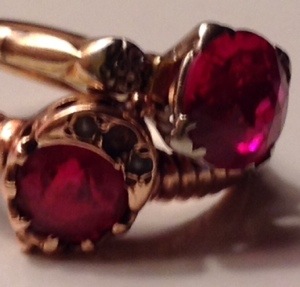Tags
My Netflix habits are stupidly predictable. Every time I open up my laptop, or power up my PS3, the same sequence of inane ritual ensues: I stare long and hard at my current video queue, mostly containing television shows my friends recommended and intellectual films I found compelling, at least in theory, when I hadn’t had a busy day at work, or, been chasing after a lively three-year-old who was happily determined to vanquish all of the monsters in my apartment (they live in the upholstery, apparently). Should I watch the American House of Cards? No. I’m not in the mood to watch people be crafty, amoral, douche-canoes to each other. How about Broadchurch? Oh God, no. David Tennant without a Scottish accent makes my heart melancholy (seriously, the world is a much sadder, blander place if Mr. Tennant isn’t gustily rolling his r’s). War of the Buttons? Le Sigh. Not at all. I’m too tired to struggle through the French and watch people, especially young children in Nazi occupied France, be horrible to each other.
Media, media everywhere, but not a thing to watch.
I then quickly scroll through the other suggestion lists that orderly present themselves on the screen. I’ve watched pretty much everything from the “Period Drama Featuring a Strong Female Lead,” section. Heck, I’ve been watching and reading stuff in that category since I was twelve. The same goes for ” Film Based on a Book.” Usually, I’ve already read the book and don’t want the film to ruin it—or, I’ve already watched the film, because I read the book. “Quirky Independent Films” are never quirky or independent enough for me and “Action and Adventure” only catches my eye when the Marvel Universe or Neil Gaiman are doing the storytelling…or, if Daniel Craig is running around being James Bond.
I sigh. Media, media everywhere, but not a thing to watch. Then I laugh. There, in my “Watch it Again” section, is the face of a high-cheekboned women with a black bob and a white cloche hat.
“Well Miss Fisher, it looks like I’ll be watching you—yet again.”
If you aren’t familiar with Miss Fisher’s Murder Mysteries, I highly recommend that you look into it (or at least watch the above trailer to see if it’s for you). Shown on both the Australian Broadcasting Corporation and PBS, the show’s two seasons follow the adventures of the Honorable Miss Phryne Fisher, modern woman and clever lady detective, and her circle of lively, eccentric, compassionate, friends and colleagues. These adventures take Miss Fisher and the viewer through the decadent and difficult world of 1920s Melbourne, complete with jazz clubs and anarchists and couture fashion and rum smugglers and post World War trauma and lots and lots of glamorous parties.
Miss Fisher’s Murder Mysteries is my show for all seasons. It’s writing and visual aesthetics never fail to engage me, no matter how tired my brain is. If my brain is completely shot after a long day, I can enjoy Inspector Jack Robinson’s expressive, grey-blue eyes, Miss Fisher’s stunning Art Deco wardrobe, and all the handsome fellows Miss Fisher sensitively and unapologetically makes out with. But, if my brain wants to be more engaged, I can marvel at the show’s fastidious historical detail, allowing my imagination to enter the world of 1920s Melbourne and experience its joys and worries as my own. And, if I am in full possession of my faculties, I can contemplate the beautifully written, real, complex main character. As a main female character on a popular television show, Phryne leaves me breathless. She is how women should be written—as capable, yet vulnerable human beings, full of strengths, weaknesses, and quirks. This is a character who is the sum of her experiences, and those experiences are pretty horrific: a sister murdered in her childhood, the horrors of WWI (where she served as a medic), an abusive relationship in her early twenties…yet, she lives her life with joy in the face of the trauma and the grief. Sometimes, those experiences paralyze her, but those experiences also make her compassionate, generous, and courageous. One of the things that keeps me coming back is watching her struggle with her past while boldly propelling herself into her future, determined to learn and to live life to the hilt.
Wild Jazz begins to blast from my speakers. Unlike an American sounding David Tennant, watching an episode of Miss Fisher’s Murder Mysteries for the fifth time doesn’t make my heart melancholy. It makes my heart pretty darn happy.





